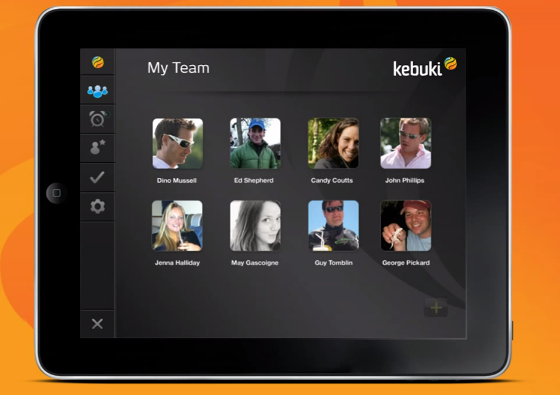 It’s been a while since I worked at Best Buy, but when I did during the very late 90’s and early part of the 2000s we used to have team meetings in the “hub” every day. Anyone who has worked at Best Buy probably remembers these meetings. Everyday as a department head and then sales lead we would go in the meeting with the team and have all the Best Buy notes, stock quotes, and store information.
It’s been a while since I worked at Best Buy, but when I did during the very late 90’s and early part of the 2000s we used to have team meetings in the “hub” every day. Anyone who has worked at Best Buy probably remembers these meetings. Everyday as a department head and then sales lead we would go in the meeting with the team and have all the Best Buy notes, stock quotes, and store information.
Our regional manager at the time, now former Best Buy CEO, Brian Dunn, also had his stores add in key dates for employees, birthdays, maybe anniversaries or if we’d get reliable info about maybe a kids achievement at school, or maybe they just finished paying off their car. We would recognize that employee in that quick meeting. As silly as that sounds it made the employee feel good for the day and morale at our store was pretty good.
That kind of rubbed off during my radio career as well when I became “management”. Although I had much smaller teams, taking an employee out for a beer on their birthday when they had no idea you knew it was their birthday goes a long way.
This “soft” management style is the heart around London startup Kebuki. Kebuki is a team management mobile tool that can be managed on any web connected device, an iPad or iPhone. Basically you load a data set (that gets encrypted) into Kebuki consisting of employees name, position, salary and incentive package, husband, wife and kids names, personal anniversary dates and important work related dates revolving around the employee.
The app (platform) then puts all of these things in a timeline for the manager. The manager can then make public recognition for the employee via the company, or even through social media channels. According to research done by Kebuki and other management consultants, these little “pats on the back” go a long way.
Imagine how thrilled your employees will be that you remember their birthdays or when they call you to tell you their spouse is sick you can tell them you hope that their spouse feels better, by name.
But how do you really know? Well in addition to the team management platform Kebuki sends out an email to the employees on your team monthly, with one simple question, “On a scale of 0-10 how would you rate me as a manager”. This feedback is great for the manager, and it further reiterates that some “soft” management tactics can go a long way.
We got to talking with Charlie Cowan, the founder of Kebuki about his management inspiring startup, and why, despite the fact that Kebuki is based in the UK, they are launching in the US first.
Check out the interview, after the break
Kebuki is an app that helps managers to inspire and lead their teams resulting in higher productivity and lower staff turnover. The top thing employees want is to feel valued for their work, and to have support around their personal lives, but most managers find this really difficult to consistently deliver. Kebuki is a really easy way to be the amazing manager you wanted to be!
Charlie Cowan has worked in technology businesses for 15 years.. I’d actually studied at Agricultural College, but driving past an office with lots of nice cars outside in the run up to my final exams, I walked in, asked them what they did, and asked for a job. It just happened to be a quickly growing tech company called MessageLabs that I spent over a decade working for learning about Sales, Marketing, Cloud and ultimately delivering a solution to a customer’s problem.
We’re based in the UK about an hour west of London. For a long time the US has led the way in the tech start-up scene, but the UK is now producing a huge amount of competition with an increasing number of incubators and super-angels helping get great ideas off the ground here. It feels a good time to be setting up in the UK.
Kebuki is an interesting cross-over between B2B and B2C. Our market is B2B in that we’re helping managers solve a problem in their work life, but we are targeting them as individuals just as Evernote or Dropbox might. As we have a global market we’ve chosen to target the US first to ensure we focus on building an app that gets traction purely from the website and user recommendation.
The majority of managers want to be great managers, and lead great teams – but they have no tools to help them to do it. Employees want to be valued for the work they do and to have support around their personal lives, but managers find it impossible to deliver this consistently across their entire team. Sales people use a system like Salesforce, marketers use a system like Hubspot or Marketo, accountants use a system like Netsuite. What do managers use? A notebook and pen – just like they have for hundreds of years.The second problem Kebuki solves is that most managers have no idea how well they are doing. A recent survey by CIPD in the UK showed that managers tend to think they are doing a lot better than their team do! Some companies will run 360 appraisals but these tend to be haphazard and irregular! We’re making sure managers get feedback from their entire team every 4 weeks, and are able to use this to compare themselves against other managers in their business – in other offices, departments or countries.
As our user base increases our secret sauce will be the power of the network. With 100,000 managers on the platform we’ll be able to provide amazing analytics back to our managers about how they are performing against managers in similar situations – we can cut the data by age, number of people in the team, industry, department.Ultimately our manager’s Kebuki Rating will become a career enhancing badge – benchmarked as one of the top performing managers they can attract the top talent to their teams, retain them, and push their own career forward at the same time.
The main thing we’ve learned is to see Kebuki through fresh eyes each time. A lot of people coming to the site assume we are an HR app, that all employees log into, and that we should have some kind of goal setting and performance management built in. We need to continually develop our message around Kebuki being an app that helps managers to be better at their job, and not a way of setting more targets for team members.We’re continuing to spend time interviewing people who know nothing about Kebuki to see whether we’re getting closer to them seeing what we see!
Kebuki is derived from a form of Japanse theatre called Kabuki. Kabuki is in turn derived from the Japanese verb Kabuku meaning to lean, or out of the ordinary. We like to think that Kebuki managers are out of the ordinary and and we can bring some sexiness and excitement to the role of the world’s managers.
Over the next few months we’re working hard to build a community of the world’s managers by writing amazing content on our blog. We’re then looking for awesome people in that community to buy Kebuki licences at a discount to help fund development of the application. We only need a few hundred managers to get Kebuki live, and we’re confident with the success of sites like Kickstarter that if a proposition is strong enough this model can work.





One comment
Leave a reply →
Comments are closed.